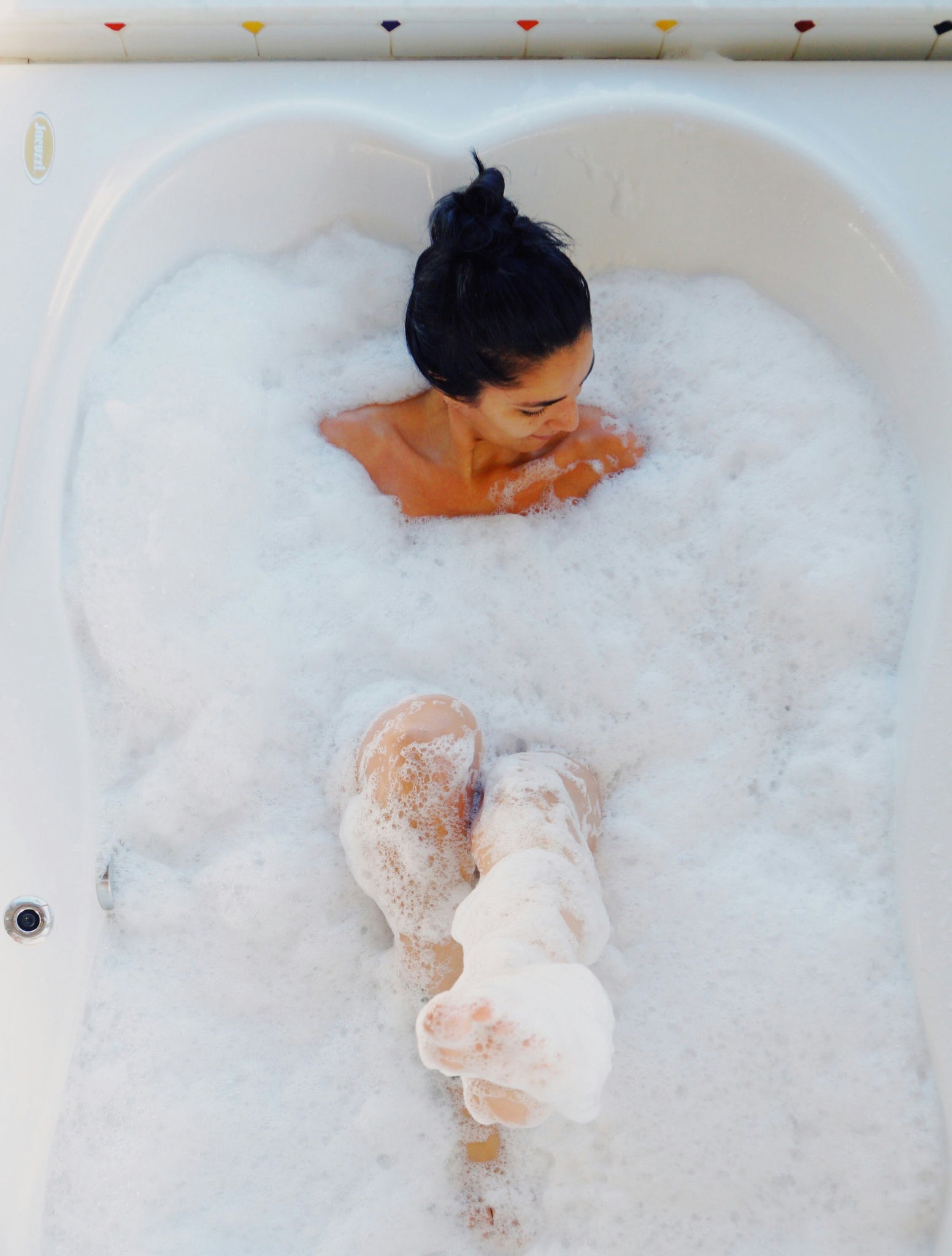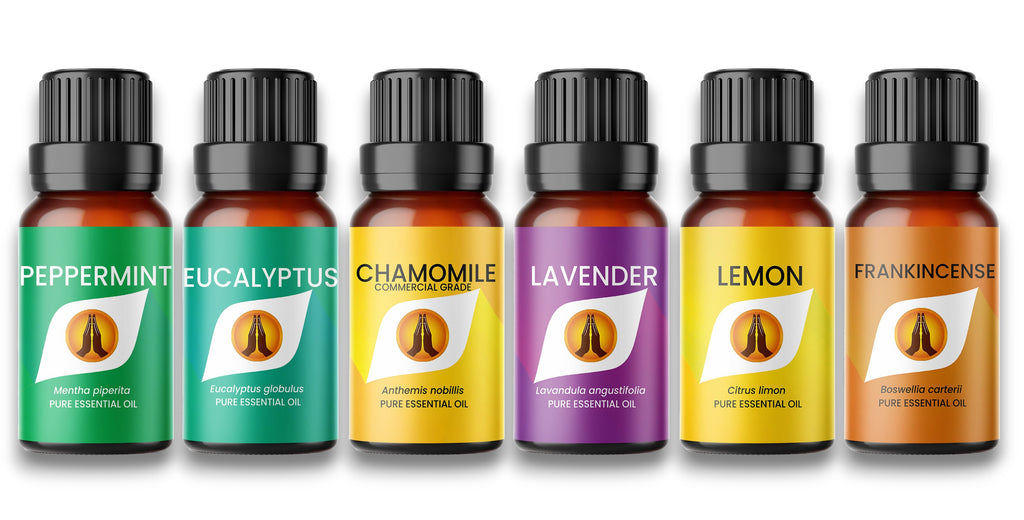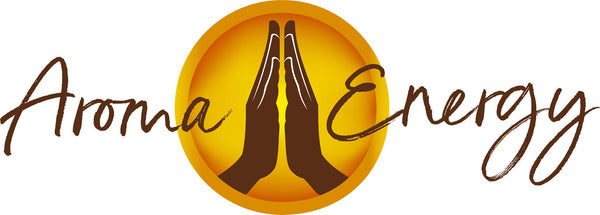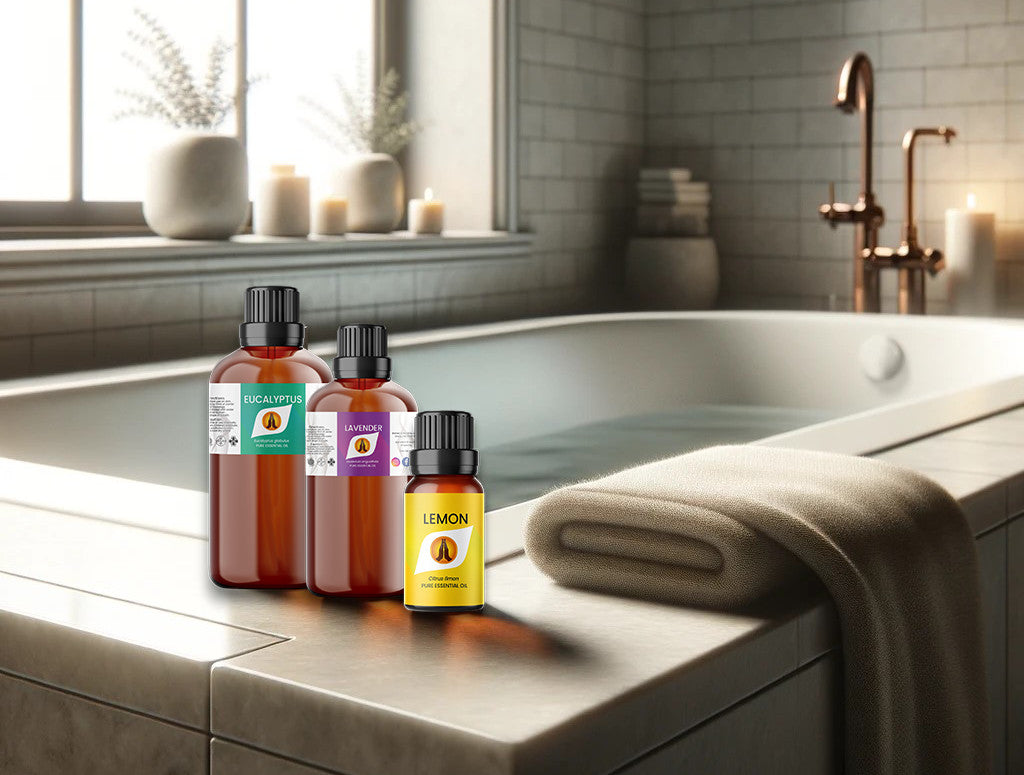Introduction
Hello and welcome to our cozy corner of wellness and relaxation! Today, we're diving into the world of essential oils and how they can transform your bath into a luxurious spa experience right at home. Imagine sinking into warm, fragrant waters that wash away stress, ease muscle tension, and nourish your skin—all thanks to the magic of essential oils.
Essential oils aren't just a trend; they are nature's gift, offering a plethora of health and wellness benefits. Whether you're looking to unwind after a long day, soothe aching muscles, or just indulge in some much-needed self-care, adding essential oils to your bath could be the perfect solution. And with a variety of oils to choose from, each with its unique scent and properties, the possibilities for relaxation and rejuvenation are endless.
To ensure your bathing experience is not only enjoyable but also safe, it's important to know which essential oils to use and how to use them correctly. That's why we're here to guide you through everything you need to know about incorporating essential oils into your baths, from the benefits and best practices to safety precautions and even some DIY recipes.
Before we get started, let's highlight a few of our favorite essential oils that are perfect for adding to your bath:
- Lavender for its calming and relaxing properties.
- Lemon for a refreshing and mood-boosting soak.
- Eucalyptus to clear your mind and soothe your body.
Ready to turn your bath into a blissful retreat? Let's dive in and explore how essential oils can elevate your bathing routine to new heights of luxury and relaxation.
Key Takeaways
Dive into this blog post to uncover:
- The Healing Power of Essential Oils: Discover how different essential oils can transform your bath into a therapeutic experience, offering relaxation, pain relief, and mood enhancement.
- Safe Usage Practices: Learn the importance of diluting essential oils with carrier oils for a safe and enjoyable bath experience, along with essential safety tips.
- DIY Recipes and Tips: Get creative with easy DIY essential oil recipes for baths, plus tips on enhancing your aromatherapy journey.
- Beyond the Bath: Explore versatile ways to incorporate essential oils into your daily life for health and happiness.
Prepare to enrich your wellness routine with the natural magic of essential oils!

Introduction to Essential Oils
Before we dive into the soothing waters of essential oil-infused baths, let's get acquainted with what essential oils actually are. Essential oils are potent, natural extracts obtained from flowers, leaves, roots, or fruits of plants and trees. These oils capture the essence of the plant, including its scent and beneficial properties, through processes like steam distillation or cold pressing.
Each essential oil boasts a unique chemical composition that defines its aroma, color, and wellness benefits. For centuries, these oils have been integral to aromatherapy, traditional medicine, and even religious ceremonies, revered for their ability to promote physical, emotional, and spiritual well-being.
Here are a few reasons why essential oils have become a staple in health and wellness routines:
- Natural Aromatics: Essential oils provide a natural way to add a delightful fragrance to your home and personal care routine without the artificial chemicals found in many commercial products.
- Therapeutic Benefits: From reducing stress and anxiety to alleviating pain and improving sleep, essential oils offer a wide range of health benefits.
- Versatility: Beyond their use in aromatherapy, essential oils can be incorporated into skincare, household cleaning products, and yes, even baths, for a holistic approach to wellness.
As we explore the wonders of adding essential oils to your bath, remember that these powerful plant extracts bring not just their delightful scents but also their therapeutic properties into your bathing ritual. Whether you're looking to relax, rejuvenate, or simply enjoy a moment of peace, there's an essential oil to enhance every bath time experience.
Benefits of Essential Oils
Immersing yourself in a bath enhanced with essential oils is more than a simple pleasure; it's a multi-sensory experience that can significantly impact your well-being. The integration of essential oils into your bath routine can transform an ordinary bath into a potent therapeutic ritual. Here’s how:
- Stress Relief and Relaxation: After a long day, a bath can be a sanctuary of calm, and adding essential oils such as lavender or chamomile amplifies this effect. These oils are known for their calming properties, helping to reduce stress and anxiety levels, promoting a sense of peace and relaxation.
- Improved Sleep Quality: A warm bath before bed already aids in better sleep, but when you add essential oils like lavender, you enhance this benefit. The soothing aromas help to quiet your mind and prepare your body for a restful night's sleep.
- Muscle and Joint Pain Relief: Essential oils such as eucalyptus and peppermint have analgesic properties that can help soothe muscle and joint pain. The warm water of the bath helps to distribute the oil evenly, providing relief to sore and tense areas.
- Skin Health: Many essential oils have anti-inflammatory and antimicrobial properties that can benefit the skin. For example, tea tree oil is known for its ability to combat acne, while rose oil can help moisturize and improve skin texture.
- Immune System Boost: Certain essential oils, like lemon and eucalyptus, are revered for their antibacterial and antiviral properties, making them great additions to your bath during cold and flu season to help boost your immune system.
- Mood Enhancement: The aroma of essential oils can directly influence the part of your brain responsible for controlling moods. Citrus oils, such as orange and grapefruit, are particularly uplifting and can help brighten your mood.
- Respiratory Relief: Inhaling the steam infused with eucalyptus or peppermint oil can open up nasal passages, providing relief from congestion and other respiratory issues.
By turning to nature's pharmacy and incorporating essential oils into your baths, you're not just indulging in a luxurious experience; you're also tapping into ancient wisdom that harnesses the power of plants for healing, relaxation, and rejuvenation. Whether you're seeking physical relief, emotional balance, or simply a moment of tranquility, essential oils offer a simple yet profound way to enrich your life and well-being.
Popular Essential Oils for Baths
Choosing the right essential oil for your bath can enhance your bathing experience, providing relaxation, invigoration, or relief depending on your needs. Here’s a list of some popular essential oils and their benefits, making them perfect additions to your next soak. Remember, integrating these essential oils into your bath routine is easy with products from our collection, ensuring you enjoy the purest, most beneficial experience possible.
- Lavender: Known for its calming and relaxing properties, lavender is the go-to oil for reducing anxiety and promoting a peaceful night's sleep. Its gentle floral scent helps soothe the mind and body, making it ideal for a stress-relieving bath before bed. Explore our Lavender Essential Oil for a serene bath experience.
- Lemon: This citrus oil is not only refreshing and mood-lifting but also has antiseptic and antimicrobial properties. Adding lemon oil to your bath can invigorate your senses and leave you feeling refreshed and energized. Check out our Lemon Essential Oil to brighten up your bath time.
- Eucalyptus: With its sharp, invigorating scent, eucalyptus oil is excellent for clearing the mind and easing respiratory issues. It's also known for its pain-relieving effects, particularly on sore muscles and joints. Our Eucalyptus Essential Oil can transform your bath into a rejuvenating spa experience.
- Chamomile: Chamomile is not just for tea; its essential oil form offers anti-inflammatory properties and promotes relaxation and comfort, making it perfect for a soothing bath. Our Chamomile Essential Oil Dilute is ideal for a gentle, calming soak.
- Frankincense: This ancient oil is celebrated for its ability to calm the mind, reduce stress and anxiety, and support skin health. Frankincense adds a luxurious, grounding note to any bath. Discover the benefits with our Pure Frankincense Essential Oil.
- Ylang Ylang: Famous for its rich, floral fragrance, ylang ylang is a potent mood enhancer that can also promote relaxation. It’s known to balance emotions and improve skin condition. Enhance your bath with our Ylang Ylang Essential Oil.
- Peppermint: Offering more than just a refreshing aroma, peppermint oil can soothe digestive issues, relieve headache pain, and energize the senses. For a revitalizing bath, consider adding our Peppermint Essential Oil to your routine.
These essential oils, when properly diluted and used with care, can make your bath time a deeply healing and enjoyable ritual. Remember, quality matters when it comes to essential oils. By choosing products from trusted sources like ours, you ensure the purity and efficacy of your bath experience, maximizing the therapeutic benefits of each drop.

Carrier Oils
To safely enjoy the benefits of essential oils in your bath, it’s crucial to understand the role of carrier oils. Carrier oils are base oils used to dilute essential oils before they are applied to the skin or added to bath water. This is important because essential oils are highly concentrated and can cause irritation or allergic reactions if used directly on the skin without dilution.
Here’s why incorporating carrier oils into your bath routine is essential:
- Skin Protection: Carrier oils ensure that essential oils are more gently absorbed by the skin, minimizing the risk of irritation.
- Enhanced Absorption: Mixing essential oils with carrier oils helps disperse the essential oils more evenly throughout the bath water, allowing your skin to absorb the therapeutic properties more effectively.
- Moisturizing Benefits: Many carrier oils have their own nourishing properties, adding an extra layer of moisture to your skin during your bath.
Best Carrier Oils for Essential Oils Bath
When selecting a carrier oil for your bath, consider its scent, skin benefits, and texture. Here are some of the best carrier oils to mix with essential oils for a bath:
- Jojoba Oil: Mimicking the skin’s natural oils, jojoba oil is easily absorbed without leaving a greasy residue. It’s perfect for all skin types and enhances the skin’s barrier function. Find it here: Jojoba Carrier Oil.
- Coconut Oil: Known for its moisturizing properties, coconut oil is ideal for dry skin. It creates a protective layer, helping to retain moisture in the skin. Explore our Coconut Carrier Oil for a hydrating bath experience.
- Sweet Almond Oil: This oil is rich in vitamins E and A, making it highly nourishing and suitable for most skin types. Sweet almond oil helps improve skin tone and complexion. Find it here: Sweet Almond Oil
- Grapeseed Oil: A light and non-greasy option, grapeseed oil is great for those with sensitive or oily skin. It’s also known for its antioxidant properties. Find it here: Grapeseed Oil
How to Use Carrier Oils with Essential Oils
To use carrier oils with essential oils for a bath, follow these steps:
- Choose Your Essential Oil: Decide on the essential oil(s) you wish to use based on your desired bath experience—be it relaxation, invigoration, or relief from muscle pain.
- Select Your Carrier Oil: Pick a carrier oil that complements your skin type and the essential oil’s properties.
- Mix: Dilute the essential oil with the carrier oil before adding it to your bath water. A general guideline is to mix 3-12 drops of essential oil with 1 tablespoon of carrier oil, depending on the essential oil's potency and the size of your bath.
- Enjoy: Add the oil blend to your bathwater and enjoy a soothing, aromatic soak.
Integrating carrier oils into your bath routine is a simple yet effective way to enhance your bathing experience while keeping your skin protected and nourished. Remember, the quality of both your essential and carrier oils matters for the most therapeutic and enjoyable bath.
Safety Precautions
While essential oils can transform your bath into a therapeutic retreat, it's crucial to approach their use with care. To ensure a safe and enjoyable experience, here are key safety precautions to keep in mind when adding essential oils to your bath:
- Skin Sensitivity and Allergies: Before using any new essential oil, conduct a patch test. Apply a small amount of diluted essential oil to a patch of skin and wait 24 hours for any signs of reaction. This step is especially important for those with sensitive skin or allergies.
- Photosensitivity: Some essential oils, particularly citrus oils like lemon and bergamot, can make your skin more sensitive to sunlight. Avoid direct sun exposure for at least 12 hours after using these oils in your bath.
- Pregnancy and Nursing: If you are pregnant or breastfeeding, consult with a healthcare professional before using essential oils. Some oils can have stimulating properties that may not be advisable during pregnancy.
- Children and Infants: Use extreme caution when considering essential oils for baths with young children or infants. Some essential oils can be too strong for their sensitive skin. Always consult with a pediatrician first.
- Pet Safety: Remember, what’s safe for you may not be safe for your pets. Essential oils can be toxic to animals, especially cats. Ensure proper ventilation and consider your pet's health when using essential oils at home.
- Dilution Is Key: Always dilute essential oils with a carrier oil before adding them to your bath water to prevent skin irritation. Essential oils are potent and can cause discomfort or allergic reactions if used undiluted.
- Quantity Matters: Be mindful of the amount of essential oil you use. Generally, 3-12 drops of essential oil diluted in a carrier oil is sufficient for one bath, depending on the oil's potency and your sensitivity.
- Quality and Purity: Invest in high-quality, pure essential oils from reputable sources. The effectiveness and safety of your aromatherapy bath depend on the quality of the oils you use.
- Consult Healthcare Providers: If you have any medical conditions or take medications that could be affected by hot baths or essential oils, talk with your doctor before incorporating them into your routine.
Adhering to these safety precautions ensures that your essential oil bath remains a soothing and beneficial part of your self-care regimen. By respecting the potency of essential oils and understanding their proper use, you can safely enjoy the myriad of benefits they offer.
How to Use Essential Oils in Baths
Adding essential oils to your bath can elevate a simple soak to a luxurious, spa-like experience. However, to reap the full benefits while ensuring safety, it's important to know the proper way to incorporate them into your bath routine. Here's a step-by-step guide to using essential oils in your baths effectively:
Step 1: Choose Your Essential Oils
Select essential oils based on your desired outcome. Whether it's relaxation, energization, or relief from sore muscles, picking the right essential oils is crucial. Consider using lavender for relaxation, eucalyptus for respiratory relief, or peppermint for muscle pain.
Step 2: Dilute with a Carrier Oil
Essential oils must be diluted with a carrier oil before being added to your bath to prevent skin irritation. Mix 3-12 drops of essential oil with at least 1 tablespoon of a carrier oil like coconut, jojoba, or almond oil. This not only ensures safety but also helps the oil disperse better in water.
Step 3: Add to Bathwater
Once your essential oil is properly diluted, add the mixture to your running bathwater. Adding it while the water is running helps disperse the oil evenly throughout the bath.
Step 4: Mix Well
Use your hands to gently swirl the water in the bath, ensuring the essential oil mixture is well distributed.
Step 5: Test the Water
Before getting in, dip your hand into the water to ensure the temperature is comfortable and the oils are well mixed. This step is crucial to avoid any surprises with water temperature or oil concentration.
Step 6: Enjoy Your Bath
Step into your bath, relax, and enjoy the therapeutic aromas and soothing properties of the essential oils. For the best experience, soak for at least 15-20 minutes, allowing the essential oils to work their magic on your mind and body.
Step 7: Rinse Off (Optional)
Depending on the oils used and your personal preference, you might want to rinse off in the shower after your bath to remove any residual oils from your skin.

Tips for an Enhanced Bath Experience:
- Create the Right Atmosphere: Light candles, play soft music, and make sure the room is comfortably warm to enhance your aromatherapy bath experience.
- Stay Hydrated: Keep a glass of water nearby to stay hydrated, especially if you like your baths hot.
- Combine with Bath Salts: For added benefits, consider combining your essential oil mixture with Epsom or Himalayan salt. This can help with muscle relaxation and detoxification.
By following these steps, you can safely enjoy the numerous benefits of essential oils in your baths. Whether you're looking to unwind after a stressful day, ease sore muscles, or simply indulge in a bit of self-care, essential oils can make your bath time a rejuvenating and healing experience.
DIY Recipes
Creating your own bath blends with essential oils is not only enjoyable but allows for customization to suit your specific wellness needs. Below are a few DIY recipes to get you started. These blends are designed for a standard UK bath, typically holding around 80 litres of water. Remember, the key to a successful essential oil bath is dilution with a carrier oil to ensure the essential oils are safely dispersed and absorbed by your skin.
Relaxation Blend
- Lavender Essential Oil: 6 drops
- Chamomile Essential Oil: 4 drops
- Carrier Oil (such as Jojoba Oil): 30 ml
This blend is perfect for unwinding before bedtime or whenever you need to relieve stress. Lavender and chamomile are known for their calming and soothing properties.
Energizing Morning Bath
- Lemon Essential Oil: 5 drops
- Peppermint Essential Oil: 3 drops
- Carrier Oil (such as Almond Oil): 30 ml
Kickstart your day with this invigorating blend. Lemon boosts mood and energy, while peppermint refreshes and stimulates the senses.
Muscle Soothing Bath
- Eucalyptus Essential Oil: 4 drops
- Rosemary Essential Oil: 4 drops
- Carrier Oil (such as Coconut Oil): 30 ml
Ideal for post-workout or to ease general muscle soreness, eucalyptus and rosemary work together to relieve pain and inflammation.
Skin Nourishing Bath
- Frankincense Essential Oil: 4 drops
- Ylang Ylang Essential Oil: 3 drops
- Carrier Oil (such as Grapeseed Oil): 30 ml
Frankincense promotes skin regeneration and healing, while ylang ylang balances oil production, making this blend great for pampering your skin.
How to Use Your DIY Bath Blend
- Mix your essential oils with the carrier oil in a small container. Ensure it's blended thoroughly.
- Add the oil blend to your bathwater as it's running to help distribute the oil evenly.
- Swirl the water gently with your hands before getting in to ensure the oil is well dispersed.
- Soak and enjoy for at least 20 minutes to allow your skin to absorb the essential oils and carrier oil benefits.
These DIY recipes are simple to make and can be adjusted according to personal preference. Feel free to experiment with different essential and carrier oils to find your perfect bath blend. Remember, essential oils are potent, and less is often more. Starting with smaller amounts and adjusting based on your experience is the best way to create a bath that’s both safe and enjoyable.
Alternative Uses in Aromatherapy
Beyond their use in baths, essential oils offer versatility in aromatherapy practices, providing benefits that can be enjoyed throughout your daily routine. Here are some alternative ways to incorporate essential oils into your life, ensuring you're surrounded by their therapeutic benefits whether you're at home, work, or on the go.
Diffusing for Air Purification and Mood Enhancement
- Diffusing: Using an essential oil diffuser is one of the most popular methods to enjoy the aromatic benefits of essential oils. It not only purifies the air but can also alter the mood of a room. For instance, diffusing lemon oil can invigorate the space with a fresh, uplifting aroma, while lavender can create a calming environment.
Personal Inhalers for On-the-Go Relief
- Personal Inhalers: These are portable devices filled with absorbent material soaked in essential oils. They're perfect for immediate relief or a quick mood boost. Peppermint oil in a personal inhaler can help alleviate headaches or mental fatigue when you're out and about.
Essential Oil Roll-Ons for Direct Application
- Roll-Ons: Blending essential oils with a carrier oil in a roll-on bottle makes for a convenient way to apply oils directly to the skin. This method is particularly useful for stress relief, headache relief, or even applying to pulse points before sleep. Creating a roll-on with a blend of chamomile and lavender can be perfect for calming down anytime, anywhere.
Scented Candles and Wax Melts for Ambient Aromatherapy
- Scented Candles and Wax Melts: Incorporating essential oils into candles or wax melts offers a subtle way to enjoy their benefits as they slowly release the aroma into your space. This method is excellent for setting a relaxing ambiance in your home or office.
Aromatherapy Sprays for Immediate Atmosphere Adjustment
- Aromatherapy Sprays: Mixing essential oils with water in a spray bottle can create an instant room spray to refresh your living space, linens, or even as a body mist. A quick spritz of a eucalyptus and tea tree oil blend can help purify and refresh your environment, especially during cold and flu season.
Incorporating into Skincare and Body Products
- Skincare and Body Products: Adding a few drops of essential oils to your lotions, creams, or body washes can provide daily skin benefits and therapeutic properties. For instance, adding tea tree oil to your facial cleanser can help combat acne, while frankincense oil in your body lotion can promote skin rejuvenation.
Homemade Cleaning Products for a Non-Toxic Home
- Cleaning Products: Essential oils like lemon, lavender, and tea tree have natural antibacterial properties, making them excellent additions to homemade cleaning solutions. Not only do they help clean your home effectively, but they also leave behind a pleasant, natural fragrance.
By exploring these alternative uses, you can maximize the benefits of essential oils beyond the bathtub, integrating their healing, soothing, and revitalizing properties into every part of your day. Whether you're looking to boost your mood, improve your health, or simply enjoy the fragrances nature has to offer, essential oils can be your versatile companion.
Quality and Selection
When integrating essential oils into your bath routine or broader aromatherapy practices, the quality and selection of the oils you choose play a pivotal role in the effectiveness and safety of your experience. Here are some key considerations to ensure you're selecting the best essential oils for your needs:
Purity
- 100% Pure Essential Oils: Look for oils that are labeled as "100% pure essential oil." This indicates that the oil has not been diluted with a carrier oil or mixed with synthetic fragrances or additives, ensuring you're getting the full therapeutic benefits.
Sourcing
- Ethical and Sustainable Sourcing: High-quality essential oils are sourced from plants grown in their indigenous locations, where they can develop their most potent therapeutic properties. Ethically sourced oils ensure that production practices are sustainable and fair to local communities.
Extraction Method
- Proper Extraction Methods: The method used to extract the essential oil can affect its quality. Steam distillation and cold pressing are the most common and preferred methods for preserving the integrity and potency of the oils. Avoid oils extracted using chemical solvents, as this can leave harmful residues in the final product.
Packaging
- Proper Packaging: Essential oils should be packaged in dark glass bottles to protect them from light, which can degrade their quality over time. Also, ensure the bottle has a proper seal to prevent oxidation.
Brand Reputation
- Reputable Brands: Purchase essential oils from reputable brands that provide detailed information about their product sourcing, extraction methods, and testing practices. Look for brands committed to quality and transparency.
When you invest time in selecting high-quality, pure essential oils, you ensure that your aromatherapy practices are not only enjoyable but also safe and effective. By paying attention to these key factors, you can confidently incorporate essential oils into your life, whether for enhancing your bath experience, improving your health, or simply enjoying the beautiful aromas nature has to offer.
Conclusion
Embracing the world of essential oils for your bath and broader aromatherapy practices can transform your daily routine into a luxurious, healing ritual. From the calming embrace of lavender to the invigorating zest of lemon, these natural wonders offer a plethora of benefits for mind, body, and soul. As you embark on this fragrant journey, remember the importance of selecting high-quality, pure essential oils and using them safely by diluting with carrier oils and adhering to recommended usage guidelines.
We've explored the therapeutic wonders of popular essential oils, the importance of carrier oils for safe dilution, essential safety precautions, and various ways to incorporate these natural elixirs into your life beyond the bathtub. Whether you're crafting a serene spa-like atmosphere at home, seeking relief from physical discomfort, or enhancing your skincare routine, essential oils offer a versatile, natural solution.
By integrating essential oils into your wellness practices, you're not just indulging in their delightful aromas; you're also tapping into an ancient tradition of natural healing and relaxation. As you continue to explore and experiment with different oils and blends, let your intuition and personal preferences guide you towards the scents and effects that resonate most deeply with you.
For those ready to dive into the aromatic world of essential oils, visit our collection to discover the purest, most ethically sourced oils available. From Lavender to Eucalyptus, and everything in between, find the perfect essence to elevate your bath time into a healing oasis.
Remember, the journey with essential oils is deeply personal and endlessly rewarding. Enjoy the process of discovering the oils that speak to you and the blends that bring you the most joy and wellness. Here's to your health, happiness, and the countless baths that lie ahead, each one a unique opportunity to soak in the transformative power of nature’s most aromatic treasures.
"Disclaimer: The content on the Aroma Energy blog is for informational purposes only and not a substitute for professional medical advice, diagnosis, or treatment. Please do not ignore professional medical advice because of any information on https://aromaenergy.co.uk/. If you have any concerns about your health, consult a healthcare professional or GP."

